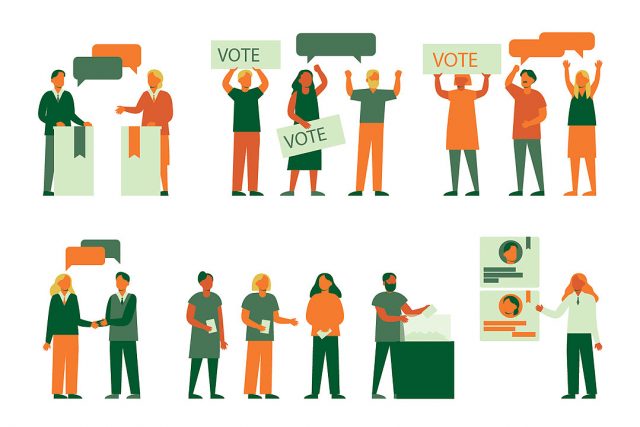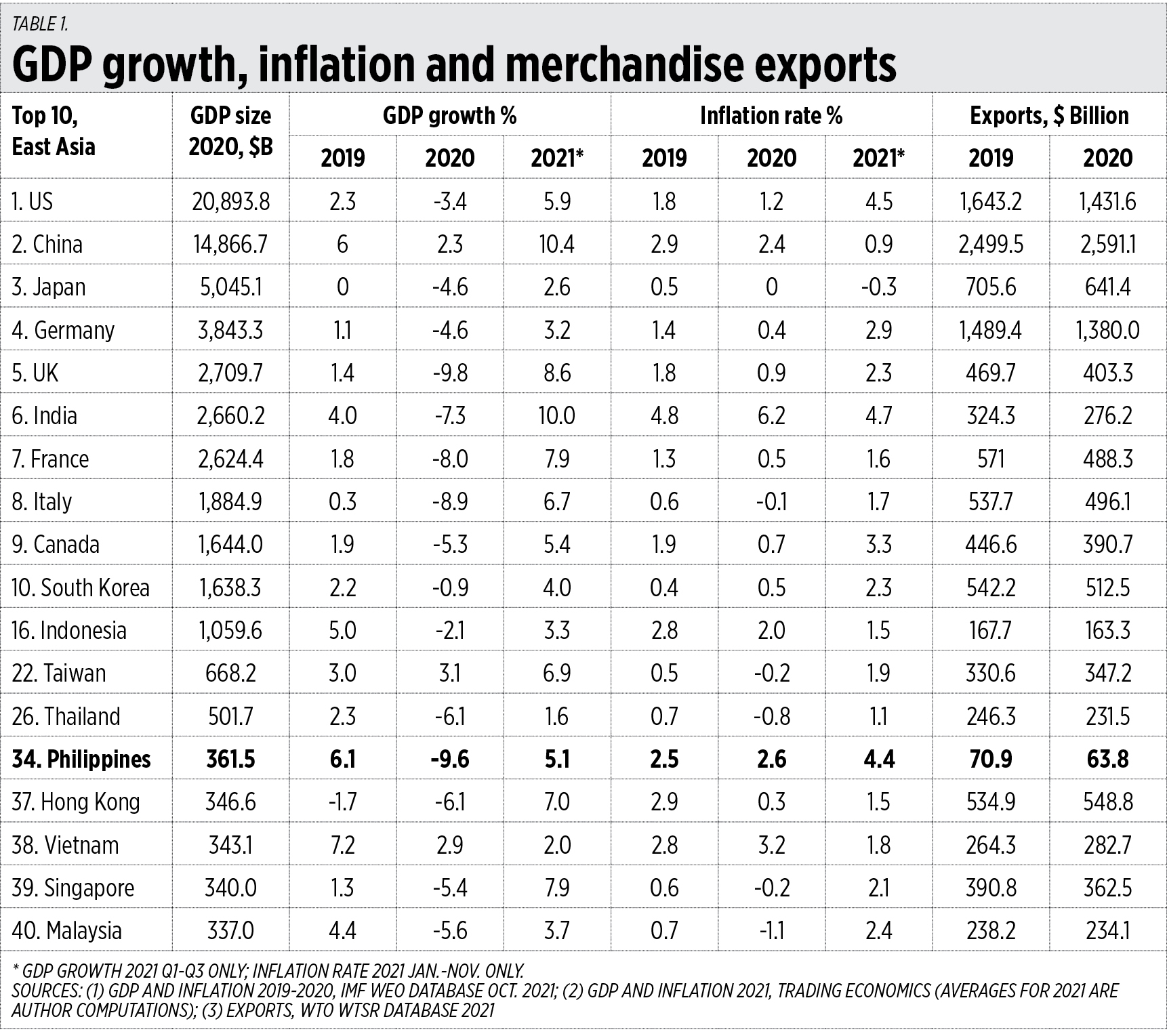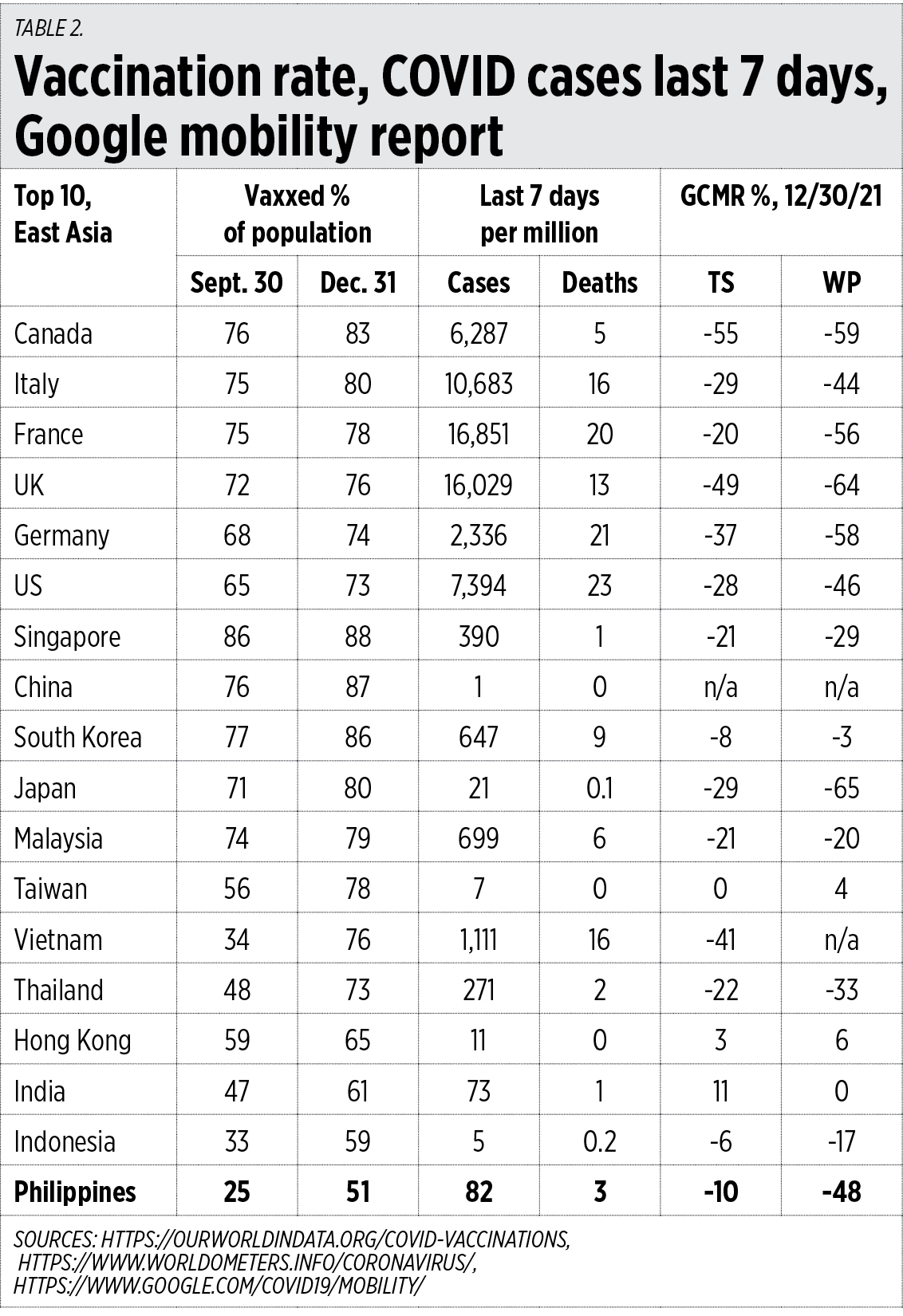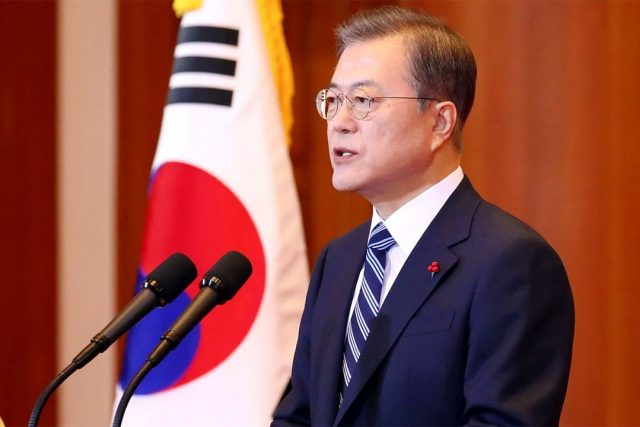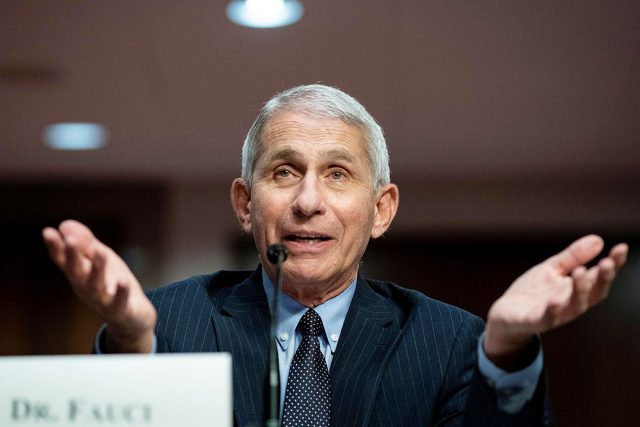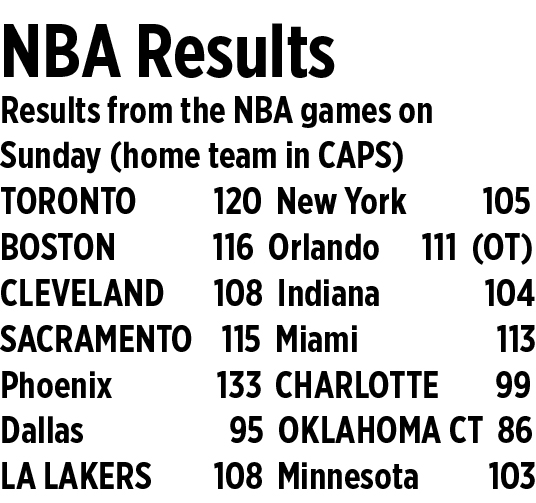When Bongbong Marcos and Sara Duterte teamed up as the presidential and vice-presidential running mates for the 2022 elections, their rabid followers cockily said, “Race is over,” implying the tandem will be sure winners in the 2022 elections. After all, Pulse Asia surveys prior to the formal filing of certificates of candidacies in October last year showed the two as the most preferred among the probable candidates for president.
When the results of the Pulse Asia survey conducted in the first week of December showed that presidential candidate Marcos and vice-presidential aspirant Duterte are the top choices, their followers crowed, “We told you so.” The results showed Marcos as the preferred candidate of 53% of the 2,500 respondents. Leni Robredo came in a poor second with only 20% preferring her. Isko Moreno Domagoso, Manny Pacquiao, and Panfilo Lacson scored less than 10% each.
Among the vice-presidential candidates, Duterte is preferred by 45% while Lacson’s running mate Tito Sotto is the preference of 31%. Robredo’s running mate Kiko Pangilinan, Moreno’s Willie Ong, and Pacquiao’s Lito Atienza garnered less than 15% each.
The rankings reflect the sentiments of the voters at the time the survey was conducted. The question Pulse Asia asked the respondents between Dec. 1 and 6 was: “If elections were held today, who would you vote for?” As Bongbong’s spokesperson, Vic Rodriguez, said, “It is clear for Bongbong that we have not won anything yet, because the election is on May 9, 2022.” Bongbong’s own sister Imee Marcos acknowledged the fact that the early frontrunner in the polls has not always emerged as the eventual winning candidate.
The survey rankings change over the campaign period. That is because a lot of things can happen between now and Election Day, which is four months from now. Not only that, the campaign strategists of the different candidates will make things happen, either to boost their candidate’s political stock or to erode his opponents’ standing.
That is what crafty and experienced campaign managers and strategists do about voter preference surveys. They do not dismiss them. They react to them. They try to influence the sentiments of the voters (represented by the respondents of the survey) by making over the image of the party’s candidate to jibe with the persona preferred by the voters.
When Jejomar Binay ran for president in 2016, his campaign slogan was “Gaganda ang buhay kay Binay” (life will get better under Binay) citing his governance of the City of Makati, the financial capital of the Philippines, as the basis of that claim. The slogan worked for him as he topped the polls for a long time. But then the strategists of his political opponents twisted the slogan into something like “Gumanda ang buhay ng mga Binay nung namuno sila sa Makati” (the life of the Binays became better when they led Makati).
Grace Poe, campaigning with the slogan “Ipagpapatuloy ko ang nasimulan ni FPJ” (I will continue what FPJ [her adoptive father Fernando Poe, Jr.] had started) replaced Binay as the leading presidential candidate in the polls. But she slid from the top of the rankings when her slogan proved to be empty as she could not give a satisfactory answer to her detractors’ question of what exactly FPJ had started.
Mar Roxas never topped the polls in 2016. So, his rivals never bothered to give his slogan of “Following the Straight Path” a negative meaning. None of the other candidates could find fault in Rodrigo Duterte’s “Change is coming.”
Greg Macabenta, an icon in Philippine Advertising and elder of the many advertising consultants of politicians, wrote somewhere that “Babangon muli” may eventually work against Bongbong.
The message being delivered by the slogan “Babangon Muli” (Will rise again) seems to be that Bongbong’s father will be resurrected, reviving the reign of Ferdinand Marcos, Sr. Greg wrote that the slogan can also be twisted into “Ba-Balic Multo” (The ghost will return) or “Ba-Balic si Meldy” and “Ba-Balic si Ma’am” along with connotations of extravagance and splurging on the people’s money.
I discern the intention behind the slogan “Babangon Muli” is to imply the revival of the supposed Golden Age that the reign of Marcos Senior was. As political analysts say, the majority of voters now were born after the EDSA Event of 1986. They do not know what the Marcos reign was really like.
Maybe the acronym BBM can do Bongbong’s campaign more damage than good if it were made to mean “Balic Batas Militar” (Re-imposition of Martial Law). The young voters of today have acquired a pretty good idea of what martial law is like. President Rodrigo Duterte’s drug war and his punitive reaction to detractors have given the youth an insight into it if not a foretaste of it. The specter of the revival of Martial Law could be scarier than “Ba-Balic Multo” or “Ba-Balic Meldy.”
Regarding Leni Robredo’s campaign, my friend Manolo Quezon wrote in his Dec. 15 column in the Inquirer that “the overarching heat and soul of her candidacy in the public mind still does not exist because it has not been communicated.”
The commercials of Moreno and Lacson do not set them apart from the lot of candidates, including those running for senator. Pacquiao must be waiting for the start of the official campaign season before he launches his commercial.
True, the race is far from over for presidential candidates Robredo, Moreno, Pacquiao, and Lacson and for their respective running mates. But they have to change their game plans if they want to surge ahead in the polls and emerge winner on May 9. They can take heart from a quote from Baseball Hall of Fame resident Lawrence “Yogi” Berra.
By the middle of the 1973 American baseball season, the New York Mets were in last place in the National League. A reporter asked the team’s manager, Yogi Berra, if the season was over for his team. He replied, “It ain’t over ’til it’s over.” Soon after, the Mets went on a long winning streak and rose rapidly in the league standings, and eventually won the National League championship. Yogi Berra’s “never-say-die” quote became an inspirational reminder to all those who enter any contest, be it sports or politics.
Oscar P. Lagman, Jr. is a retired corporate executive, business consultant, and management professor. He has been a politicized citizen since his college days in the late 1950s.




